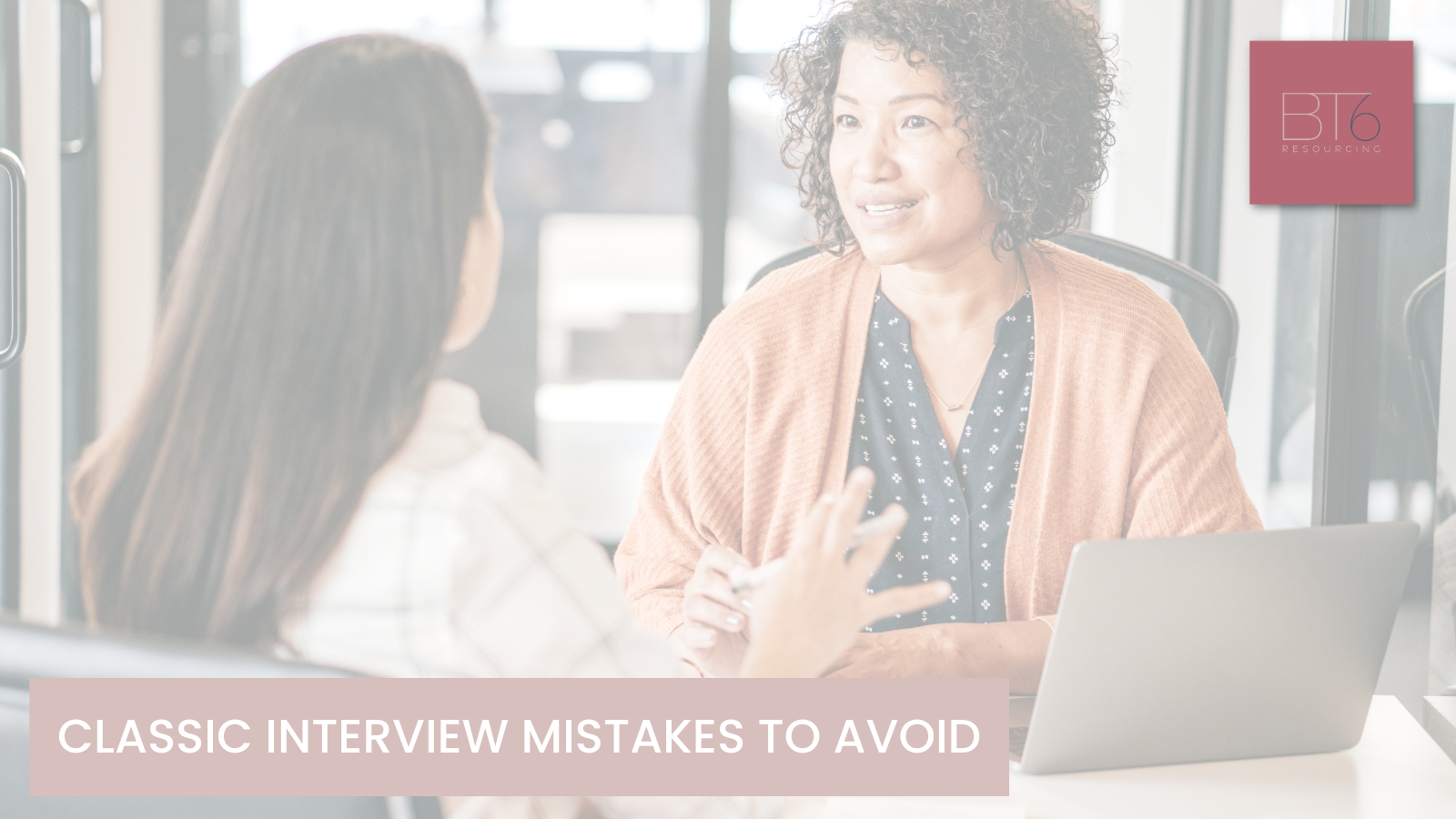Everyone wants to make a good impression when it comes to a job interview, but what are the most common classic interview mistakes that can mean you might not land your dream role, and how can you avoid them?
We share the most common interview mistakes that candidates can make…
Not doing your research
Probably the number one interview mistake people make is attending an interview totally unprepared! This could mean failing to research the company, the role, or even the person who will be undertaking your interview. It could also mean not being prepared in terms of what questions you might be asked, and therefore having great, researched answers at the ready. Arriving at your interview with a decent amount of research under your belt, and possible answers to questions will 100% help with your confidence. Remember the old expression: Failure to prepare = prepare to fail!
Not Listening
A common mistake at interview is that people go in with a pre-prepared script that they don’t divert from, therefore giving answers without really listening to the questions that are being asked by the interviewer. Really think about what is being said before speaking. Most interviewers won’t mind a considered pause if your subsequent answer is insightful and relevant!
Turning up late
Obviously, this is a big no-no, and tends to happen when people don’t plan their route, and therefore don’t allow enough time to get to the interview location. Always factor in at least 10 minutes in the location’s reception ahead of the interview time, and a few more minutes to gather yourself so you enter the interview room relaxed, confident and prepared. It goes without saying, that if you do end up being late for any reason, that you apologise profusely!
It's also worth checking your internet connection, mic & camera etc before a video interview. With more and more first interviews happening via video call, they needed to be treated in the same way as a face-to-face interview - turning up late, dropping out halfway through, or trying to be interviewed in a busy area where you can barely be heard is not ideal.
Lacking strong communication skills
If people are feeling nervous, essential communication skills such as making eye contact, building rapport and positive body language can be overlooked. Along with these things, a firm handshake and being interested in the interviewer should also be remembered. Take your cue from the interviewer - If you’re too ‘stiff’ and formal you’ll potentially sound robotic with little personality, but too relaxed may mean the interviewer thinks you won’t take the role seriously. A balance between the two is often the safest bet.
Not asking questions
You’ll inevitably be asked if you have any questions at the end of the interview, and so it’s vital that you have a few relevant ones up your sleeve. Ideally your questions will be positive and employer-focused, maybe asking about the company’s plans for the coming year or enthusing about a current client – anything that gets the interviewer animated and keen to share more with you. By having questions ready to go, you’ll sound like you’re keen on the company, and interested in its future.
Like these interview tips? Head on over to the BT6 blog for more advice, news and articles!

